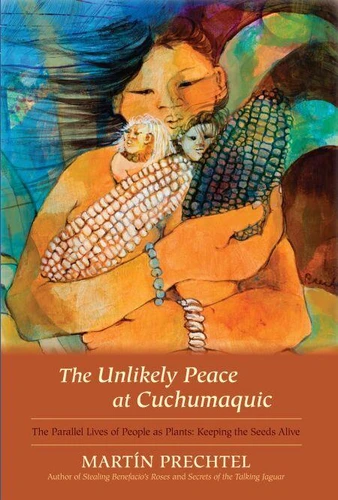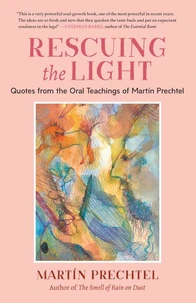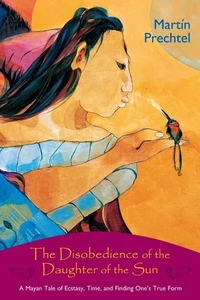The Unlikely Peace at Cuchumaquic. The Parallel Lives of People as Plants: Keeping the Seeds Alive
Par :Formats :
Disponible dans votre compte client Decitre ou Furet du Nord dès validation de votre commande. Le format ePub protégé est :
- Compatible avec une lecture sur My Vivlio (smartphone, tablette, ordinateur)
- Compatible avec une lecture sur liseuses Vivlio
- Pour les liseuses autres que Vivlio, vous devez utiliser le logiciel Adobe Digital Edition. Non compatible avec la lecture sur les liseuses Kindle, Remarkable et Sony
- Non compatible avec un achat hors France métropolitaine
 , qui est-ce ?
, qui est-ce ?Notre partenaire de plateforme de lecture numérique où vous retrouverez l'ensemble de vos ebooks gratuitement
Pour en savoir plus sur nos ebooks, consultez notre aide en ligne ici
- Nombre de pages476
- FormatePub
- ISBN978-1-58394-376-2
- EAN9781583943762
- Date de parution31/01/2012
- Protection num.Adobe DRM
- Taille3 Mo
- Infos supplémentairesepub
- ÉditeurNorth Atlantic Books
Résumé
Martín Prechtel's experiences growing up on a Pueblo Indian reservation, his years of apprenticing to a Guatemalan shaman, and his flight from Guatemala's brutal civil war to life in the U. S. inform this lyrical blend of memoir, cultural commentary, and spiritual call to arms. The Unlikely Peace at Cuchumaquic is both an epic story and a cry to the heart of humanity based on the author's realization that human survival depends on keeping alive the seeds of our "original forgotten spiritual excellence." Prechtel relates our current state of ecological crisis to the rapid disappearance of biodiversity, indigenous cultures, and shared human values.
He demonstrates how real human culture is exterminated when real (not genetically modified) seeds are lost. Like plants that become extinct once their required conditions are no longer met, authentic, unmonetized human cultures can no longer survive in the modern world. To "keep the seeds alive"-both literally and metaphorically-they must be planted, harvested, and replanted, just as human culture must become truly engaging and meaningful to the soul, as necessary as food is to the body.
The viable seeds of spirituality and culture that lie dormant within us need to "sprout" into broad daylight to create real sets of cultures welcome on Earth.
He demonstrates how real human culture is exterminated when real (not genetically modified) seeds are lost. Like plants that become extinct once their required conditions are no longer met, authentic, unmonetized human cultures can no longer survive in the modern world. To "keep the seeds alive"-both literally and metaphorically-they must be planted, harvested, and replanted, just as human culture must become truly engaging and meaningful to the soul, as necessary as food is to the body.
The viable seeds of spirituality and culture that lie dormant within us need to "sprout" into broad daylight to create real sets of cultures welcome on Earth.
Martín Prechtel's experiences growing up on a Pueblo Indian reservation, his years of apprenticing to a Guatemalan shaman, and his flight from Guatemala's brutal civil war to life in the U. S. inform this lyrical blend of memoir, cultural commentary, and spiritual call to arms. The Unlikely Peace at Cuchumaquic is both an epic story and a cry to the heart of humanity based on the author's realization that human survival depends on keeping alive the seeds of our "original forgotten spiritual excellence." Prechtel relates our current state of ecological crisis to the rapid disappearance of biodiversity, indigenous cultures, and shared human values.
He demonstrates how real human culture is exterminated when real (not genetically modified) seeds are lost. Like plants that become extinct once their required conditions are no longer met, authentic, unmonetized human cultures can no longer survive in the modern world. To "keep the seeds alive"-both literally and metaphorically-they must be planted, harvested, and replanted, just as human culture must become truly engaging and meaningful to the soul, as necessary as food is to the body.
The viable seeds of spirituality and culture that lie dormant within us need to "sprout" into broad daylight to create real sets of cultures welcome on Earth.
He demonstrates how real human culture is exterminated when real (not genetically modified) seeds are lost. Like plants that become extinct once their required conditions are no longer met, authentic, unmonetized human cultures can no longer survive in the modern world. To "keep the seeds alive"-both literally and metaphorically-they must be planted, harvested, and replanted, just as human culture must become truly engaging and meaningful to the soul, as necessary as food is to the body.
The viable seeds of spirituality and culture that lie dormant within us need to "sprout" into broad daylight to create real sets of cultures welcome on Earth.





